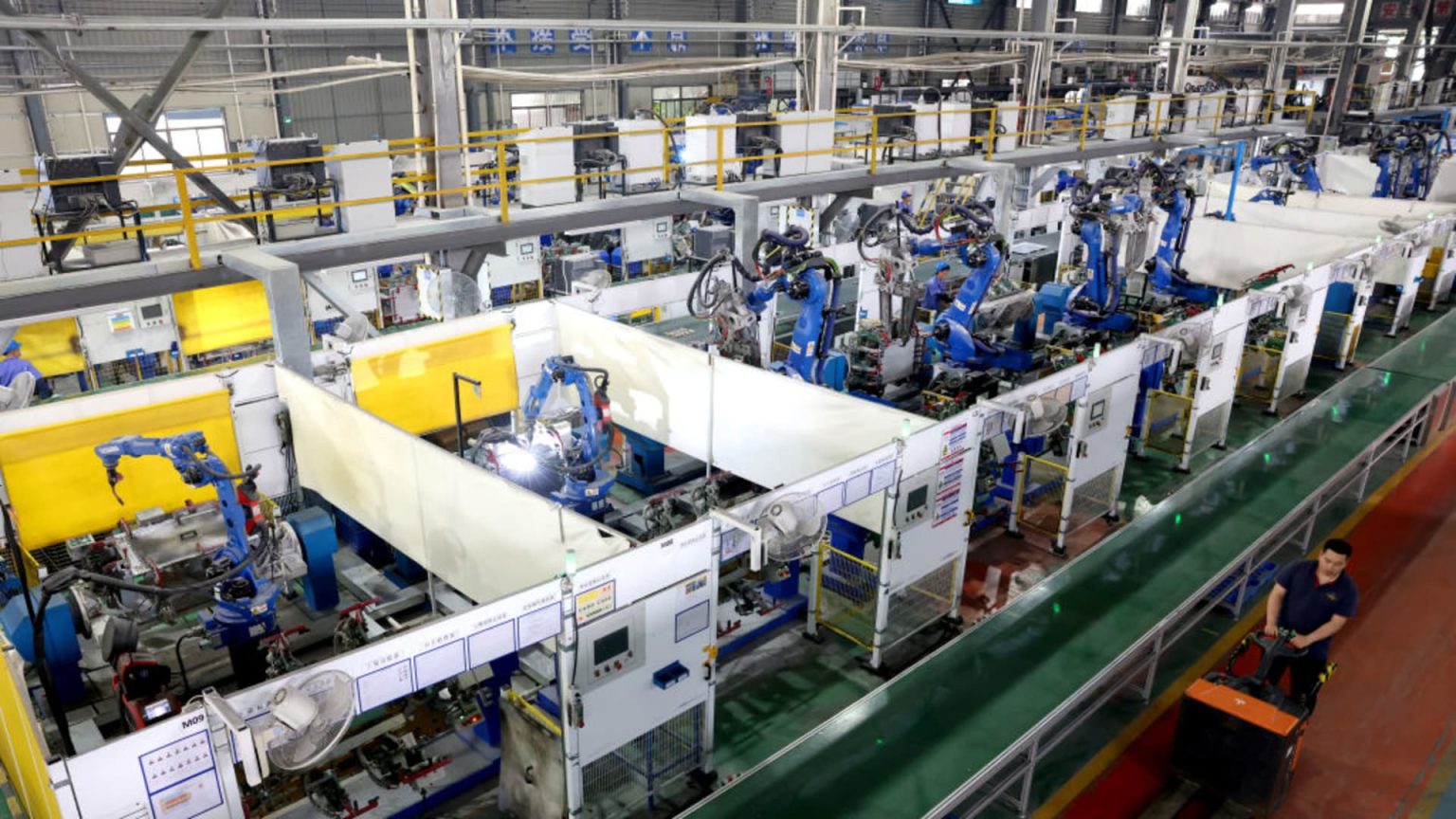Summarize this content to 2000 words in 6 paragraphs BEIJING — European companies in China are finding it harder to make money in the country as growth slows and overcapacity pressures increase, according to a survey released Friday by the EU Chamber of Commerce in China.In the metropolis of Shanghai, business members even reported delays in getting paid as it became more difficult to enforce contracts versus the prior year, according to chapter head Carlo D’Andrea.”State-owned enterprises, they postponed payments and they are using this in order to get some defacto loans from companies, especially from small, medium enterprise,” D’Andrea said, citing members’ comments.China’s growth has slowed in recent years amid geopolitical tensions. A slump in the real estate sector, which has close ties to local government finances, has also dragged down the economy.Only 30% of EU Chamber survey respondents said their profit margins were higher in China than their company’s worldwide average — an eight-year low.Back in 2016, just 24% of respondents said their profit margins were better in China than they were globally, the report said.That reflected a crash in the Chinese stock market in the summer of 2015, alongside a slowdown in the real estate market at the time, EU Chamber President Jens Eskelund pointed out to reporters.He said the current slowdown in Chinese growth had similar cyclical aspects, but there are questions about how long and deep it would be this time.The Chamber’s latest survey covered 529 respondents and was conducted from mid-January to early February.This year’s questionnaire included a new question about whether members faced difficulties in transferring dividends back to their headquarters. While more than 70% reported no issues, 4% said they were unable to do so, and about one-fourth said they experienced some difficulties or delays. It was not immediately clear whether this was due to a new regulatory stance or typical tax audit requirements.What is happening now is that companies are beginning to realize some of these pressures … are taking on perhaps a more permanent nature.Jens EskelundEU Chamber of Commerce in China, presidentChina’s economy is now far bigger than it was in 2015 and 2016. Trade tensions with the U.S. have also escalated in recent years, with Beijing doubling down on manufacturing to bolster tech self-sufficiency.”Our members saw to some extent that their ability to grow and make profit in the Chinese market — [the] correlation with the GDP figure is becoming weaker,” Eskelund said.”What is important to foreign companies is not necessarily sort of a headline GDP figure, 5.3% or whatever, but the composition of GDP,” he said. “If you have a GDP figure that is growing because more investment is being made into manufacturing capacity, that is not good for foreign companies. But if you have a GDP that is growing because domestic demand is growing, then that is a good thing.”China’s National Bureau of Statistics is due to release fixed asset investment, industrial production and retail sales for April next Friday.Overcapacity overhangChina’s emphasis on manufacturing, coupled with modest domestic demand, has led to growing global concerns that overproduction will reduce profit margins.More than one-third of EU Chamber survey respondents said they observed overcapacity in their industry in the last year, and another 10% expect to see it in the near future.The civil engineering, construction and automotive industries had the highest share of respondents reporting overcapacity.More than 70% of respondents said overcapacity in their industry resulted in price drops.”This is not just European companies whining,” Eskelund said. “This is equally, if not more painful, for Chinese companies.”Market opening in some industriesChinese authorities have meanwhile bolstered high-level efforts to attract foreign investment.Eskelund noted how Beijing’s recent visa-free policy for several EU countries has allowed executives the flexibility to plan China trips one week in advance, instead of two to three months previously.He added that Beijing’s extension of tax exemption policies has also encouraged more international staff and their families to stay in China.Cosmetics and food and beverage companies have benefited from China’s recent efforts to open its market, he said, noting that a record high of 39% of respondents said the local market was fully open in their industry.China has restricted the extent to which foreign businesses can own or operate in certain industries. Beijing removes some off-limits categories each year via a “negative list.”Record high skepticismHowever, the EU Chamber and other business organizations have said that China can do much more to implement its 24 measures for improving the environment for foreign companies.The Chamber’s latest survey found a historically large number of respondents said conditions were worsening:a record high said they were skeptical about their growth potential in China in the next two yearsa record high of respondents expect competitive pressure to intensifya record share doubt their profitability in Chinaa record high plan to cut costs this year, primarily by reducing headcount and trimming marketing budgetsa record number of respondents said they missed opportunities in China due to regulatory barriers, the size of which was equal to over half their annual revenuea record low in expectations that regulatory obstacles will decrease”When you compare to the previous years we can see that a lot of the concerns actually remain the same regarding the predictability, the visibility of the regulatory environment,” Eskelund said. “These concerns pretty much remain the same.””What is happening now is that companies are beginning to realize some of these pressures that we have seen in the local market, whether it’s competition, whether it’s lower demand, that they are taking on perhaps a more permanent nature,” he said. “That is something that is beginning to impact investment decisions and the way the go about thinking about developing the local market.”
Keep Reading
Subscribe to Updates
Get the latest creative news from FooBar about art, design and business.
© 2025 Globe Timeline. All Rights Reserved.


